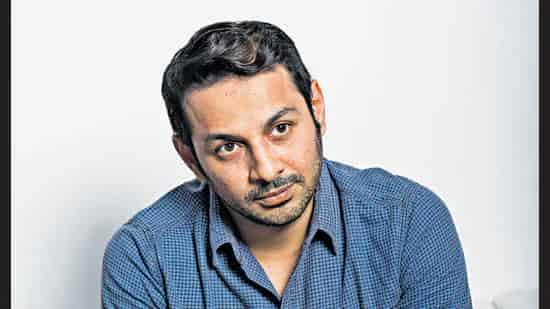Apurva Asrani: Let’s raise our voice against the awful Chhattisgarh verdict

- Naina Arora,
Hindustan Times
Last Updated: 09.44 AM, Sep 01, 2021
For writer Apurva Asrani, starting a “conversation in society” through his work is of utmost importance. Recently, the show written by him, Criminal Justice: Behind Closed Doors, bagged the Best Asian Drama series award at ContentAsia Awards 2021. But the recognition has incidentally come at a time when the Chhattisgarh High Court verdict stated that ‘sexual act with wife is not rape, even if forced’.
This, has turned the spotlight back on marital abuse in India, and Asrani can’t agree more. “The timing of the verdict coinciding with our show winning this international honour was just crazy. On one hand, the civilized world is moving towards undoing the evils of suppression of women and domestic abuse, and on the other hand the Indian courts are giving men a free hand to rape their wives, as if they are their private property. I urge more people to watch our show to understand the difference between what is care and what is abuse. Many women and men are under the misconception that control is equal to love. It’s in fact the opposite. Let’s raise our voice against the awful Chattisgarh verdict,” he says.
“I’m blessed to find collaborators who feel deep empathy towards such stories. My film Shahid (2012) talks about minorities wrongly imprisoned under draconian laws, fighting for justice. Aligarh (2016) made a case for a teacher who happened to be homosexual, fighting for his right to privacy. Made In Heaven, where I worked as an editor, took that conversation into an urban and more mainstream space,” he adds.

Asrani shares how women reaching out to him on social media, is his “greatest reward” so far. “Women of all ages have watched and connected with the show and sent me messages about their domestic situation,” he says, adding, “One women begged me to save her from an abusive husband and I was all shaken till I connected her to an NGO. I was at a restaurant the other day and bumped into a male friend who introduced me to his 82-year-old mother who had watched the show. The lady spent the next 40 minutes discussing the show and said she wept during the climax. Her husband had died two years ago and she regrets him not having seen it. When I asked why she wanted him to have watched it, she said, ‘I wish he had understood that I am more than his wife, or the mother of his children. That I am a human being first and not just an extension of his identity. Men of that generation did not understand this’, she said wistfully.”
With a dedicated space for meaningful content on OTT plafforms, how important it is to continue to bring out content such as this on OTT or on big screen, and strive to bring about a change as well? “I wept the day I learned that ‘Criminal Justice Behind Closed Doors’ was a big OTT hit. Not just because every artist strives for recognition, but also it meant that households were able to watch and digest a show like ours; that they were now ready to talk about what happens behind closed doors,” says Asrani.
Coming back to how challenging it was to write a dark show, he confesses, “Though it was an adaptation of Peter Moffat’s powerful story, we also had to carry forward characters from S1 of the Indian series. To blend both these world’s was a task. Also the way Moffat’s women were depicted belonged to 2008, a pre #MeToo world. Women today have far more agency. So we upped the feminine or ‘shakti’ force considerably. Then we talked about marital rape on a popular OTT platform, so we were concerned about the sexually explicit details. The scene when the daughter gets to know in court about what her father was doing to her mother, that was the toughest to write, and I believe it was equally hard for the makers to film!”
Author Tweets @Nainaarora8
Follow more stories on Facebook and Twitter

 Premium
Premium